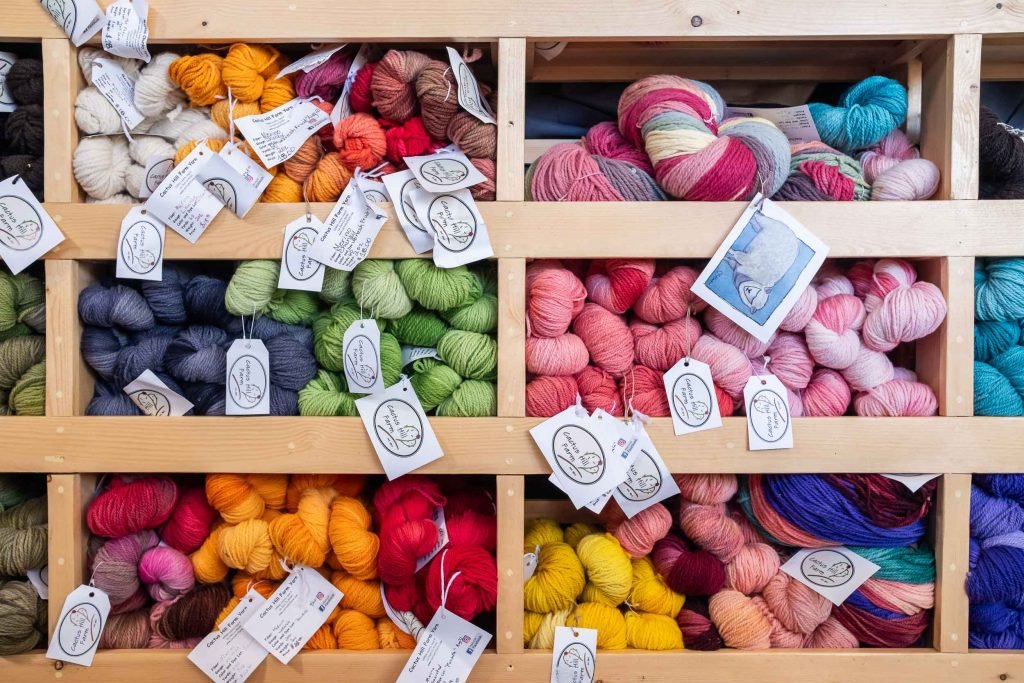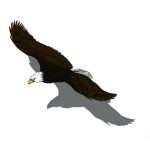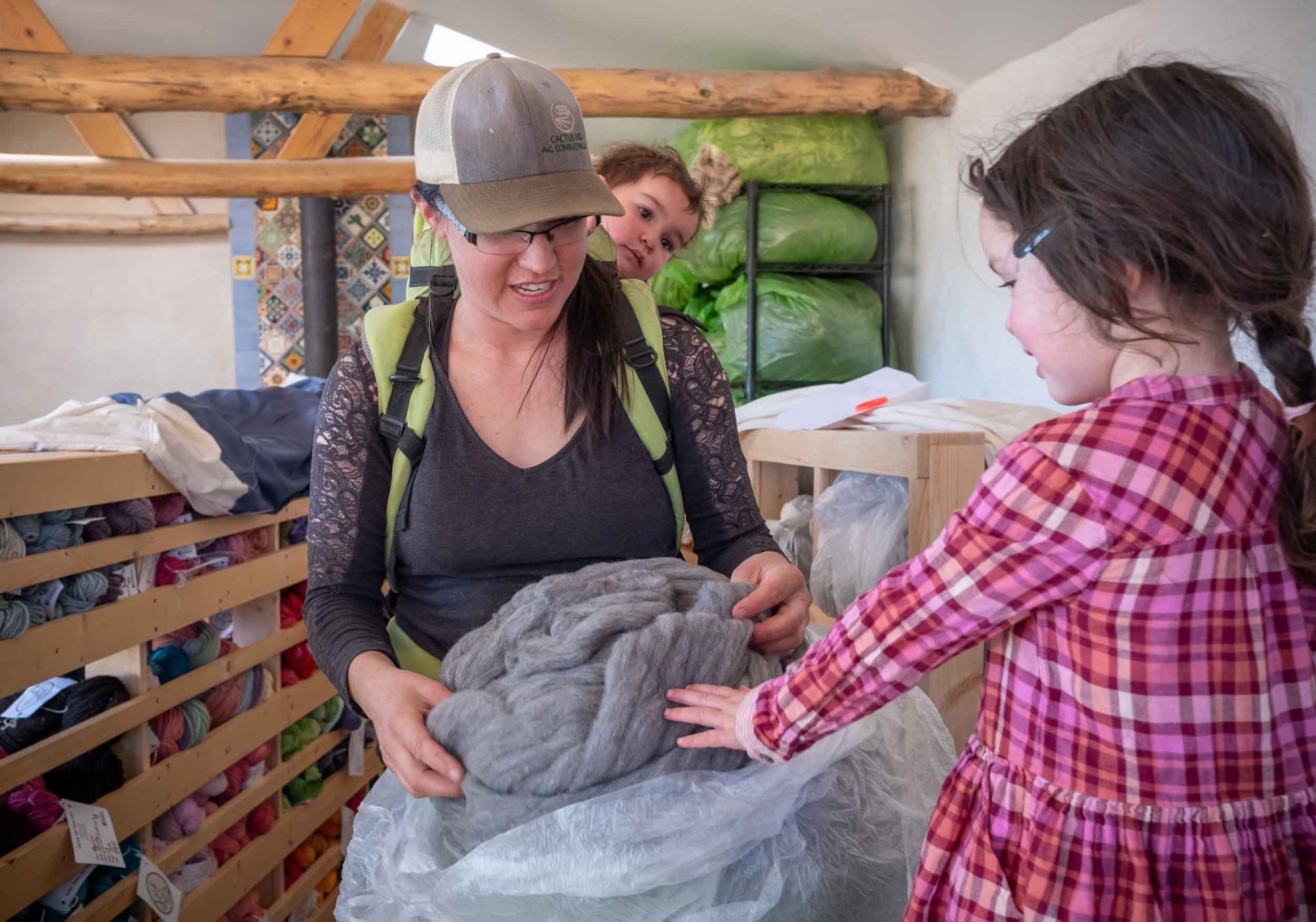By Anya Kaats.
Elena Miller-ter Kuile was studying International Agricultural Development (IAD) at Cornell when she had a life-altering realization: “I thought working in IAD was going to help save the world, but then I realized, wait a second, the United States isn’t great when it comes to agriculture. Why would I go to other countries to tell them how to live when my own country also needs help figuring out how to do things better?” After her realization, Kuile returned home, determined to continue her family’s legacy of sheep farming, which stretches back six generations.
Kuile’s ancestors were some of the original Hispano settlers who moved north as part of the land grants awarded when Colorado was still a part of Mexico. Herding their sheep up through New Mexico, near Española and Nambé, her family was one of the founding families of Albuquerque. “It’s a complex genealogy, but my family contains Hispanic and Native heritage, as well as some Sephardic Jewish heritage.”
In the 1850s, Kuile’s great-great-grandfather, J. Luis Rivera, brought his sheep to homestead in Capulin, CO, and the family farm was established in 1867.
Kuile’s grandfather was the last to keep sheep as the farm’s main source of income, before her father decided to transition the property to produce more agricultural crops.
“Back in the day, it was a struggle to keep sheep alive due to a lack of medical technology. It was a very tough business, so my dad decided to transition the farm,” said Kuile. Once Kuile returned home from college, she and her sister convinced their father that they could create a successful business and asked him if they could get two sheep.
Twelve years later, Kuile is in the process of purchasing the farm from her father and runs day-to-day operations as a single mother of two.

“The first year I worked on the farm was hilarious,” Kuile recounted. “I had no idea what I was doing. I started out with six bottle lambs, and somehow, they all survived. It was very ‘learn as you go.’ From there I moved onto eight wool sheep, and then grew to 30 Suffolk sheep. Eventually, I built up to 350 ewes including Merino, Teeswater, Wensleydale, and Bluefaced Leicester breeds.” Kuile’s father taught her invaluable skills that have been instrumental in her success. “If it weren’t for my Dad, I wouldn’t have been able to learn all of this. He has so much knowledge that’s been passed down through the generations.”
In college, Kuile fell in love with knitting, spinning, and natural fibers.
Today, a cornerstone of her business is centered on offering premium-quality yarn, roving, fleeces, pelts, and hand-felted rugs, yoga mats, and wall hangings. “Artists from all over the country order my products to spin yarn themselves, or to make things like clothing and blankets.”
Kuile also sells specialty grains and is expanding her retail meat offerings and selling half and whole lamb shares.
In addition to fibers, grains, and meat, Kuile is passionate about regenerative agriculture, sustainable water management, and strengthening her farm’s soil using both animals and field crops. Around 2015, she transitioned the farm to be Certified Organic, and helped to secure a conservation easement from the Rio Grande Land Trust. She is also serving on the Colorado Agricultural Commission.
Many of her future goals for the farm revolve around improving sustainability. “My intention is to create a more drought-resistant farm, because I don’t think things are going to get any easier. As things continue to get warmer, it’s going to make things harder as far as sustainability is concerned.
“I think a lot about how I can get creative when it comes to land management and learn from Navajo sheep traditions that were really well-suited for deserts and limited water access,” Kuile explained. Kuile faces an uphill battle when it comes to educating people about the importance of animals to ensure healthy, regenerative ecosystems.
“Unfortunately, people with livestock are considered the bad guys, and there is so much misinformation out there. The truth is that grazing animals have been an essential component of healthy ecosystems for generations.
Even desert landscapes used to have grazers — all grasses require some sort of land management, and traditionally this has always been assisted by the animals that help regenerate the soil.”
In the San Luis Valley (SLV), climate change and water management have become two of the most pressing challenges facing local farmers and ranchers. “Recently, my uncle was telling me about how the farm used to be a giant wetland,” Kuile explained. As a result of misguided, outdated advice, much of the land in the SLV has dried up. “In the past, local farmers were encouraged to take out willow trees and disturb the natural ecology of the land to accommodate mainstream farming practices. I can forgive this, because it was so many years ago before we learned from our mistakes. Nowadays, I’m less forgiving. We need to incentivize farmers to plant trees, regenerate the soil, and better-manage surface water so we don’t have to put so much stress on our groundwater resources,” Kuile urged.
Kuile has a lot on her plate, but her passion and determination is undeniable. “It’s a lot of work, but it’s a great life. There are tangible rewards, and I get to spend so much more time with my girls than I would if I worked a regular job.”
To learn more about Cactus Hill Farm, visit cactushillfarm.com or find them on Instagram @cactushillfarm.


